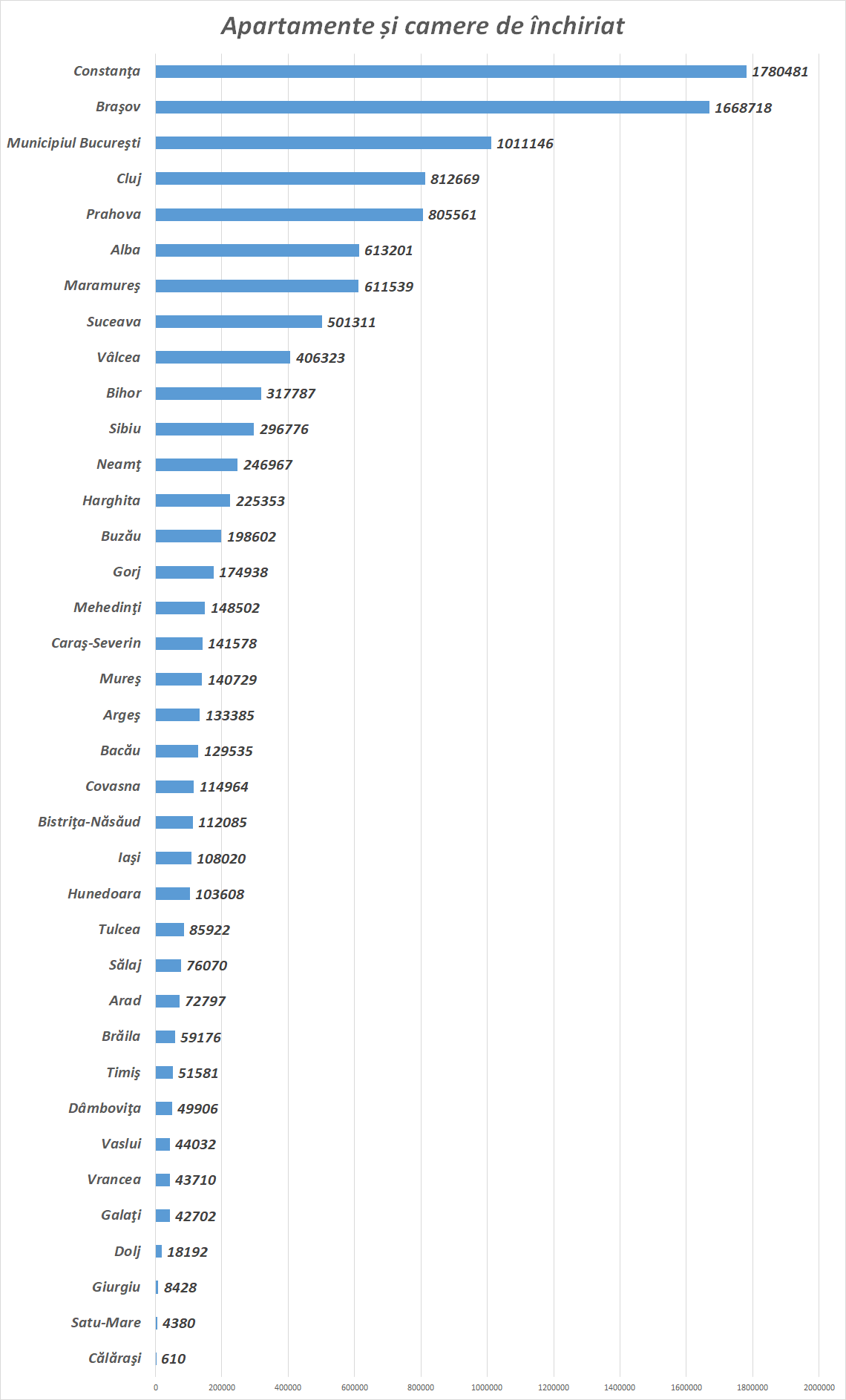
According to the latest data from the INS, the number of rooms in Romania offered through Airbnb exceeded 11.3 million. Every tenth Romanian tourist prefers this system, and in the case of foreign tourists, about 6% choose Airbnb.
Romania’s tourism market through services like Airbnb is growing, but until recently there was no official data. When measuring the number of tourists visiting us, the National Institute of Statistics only recently included this segment of tourists who prefer rooms or apartments that are cheaper than hotels.
The largest number of rooms in the Airbnb system are in Constanta (15% of the total number of rooms offered through Airbnb) and Brasov (almost 15%), followed by Bucharest (9%). On the opposite pole, counties such as Olt, Teleorman, Botosani or Ialomita have not registered a single room in the Airbnb system.

In 2023, the number of Romanian tourists vacationing in Romania increased by 8%, and foreign tourists by more than 25%.
Departures of Romanian visitors abroad in 2023 amounted to 19,449,000 people, an increase of 12.6% compared to 2022. Most trips of Romanian guests abroad were made by road transport (58.2%); the rest of the trips were made by air (40.9%), rail (0.7%) and sea transport (0.2%)
Airbnb, an online site for accommodation, hosting and vacation rentals, was founded in 2008, a startup that experienced a boom in the travel industry. Today, Airbnb is a very household name and one of the most downloaded apps in the world.
How Airbnb changed the hotel industry
Over the past decade, Airbnb has helped boost tourism around the world. Families and large groups of friends are traveling longer and sometimes in places where hotels are scarce or full, and where Airbnb offers an alternative.
It’s too early to tell how Airbnb will impact the hotel industry, but it’s clear that Airbnb has helped hotels resume their digital transformation.
But Airbnb’s success didn’t come right away. The startup has acquired a number of other startups to bolster its personalization efforts. NabeWise, Airbnb’s first acquisition in 2012, gathers information about specific locations to create city guides — which is how Airbnb began offering travelers personalized local recommendations. A second acquisition in 2012, Localmind, made it easier for travelers to customize questions about where you’re going.
Airbnb then expanded its digital payment methods in 2017 by acquiring Tilt.com in February 2017. That same year, the company increased accessibility by acquiring Accomable, once known as Airbnb for people with disabilities.
In 2019, they also acquired other apps, such as HotelTonight, which aggregates hotel room deals for last-minute travel, and then bought Urbandoor.
Source: Hot News
Lori Barajas is an accomplished journalist, known for her insightful and thought-provoking writing on economy. She currently works as a writer at 247 news reel. With a passion for understanding the economy, Lori’s writing delves deep into the financial issues that matter most, providing readers with a unique perspective on current events.